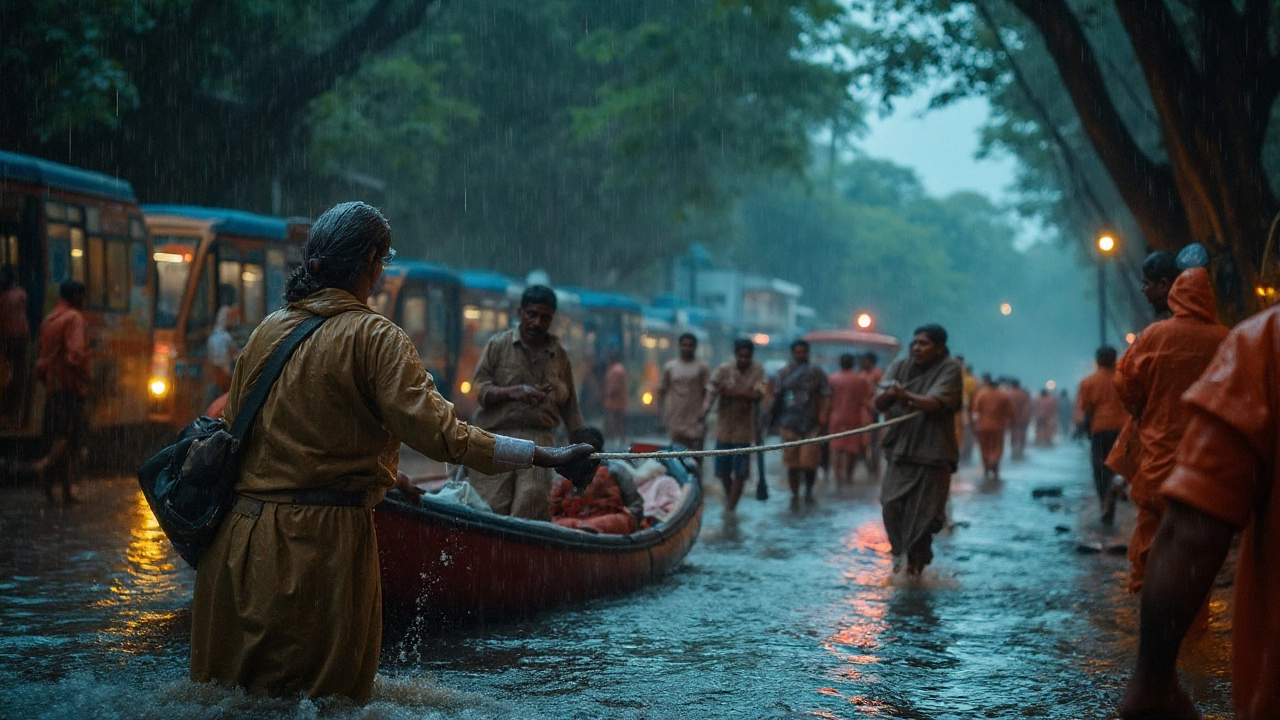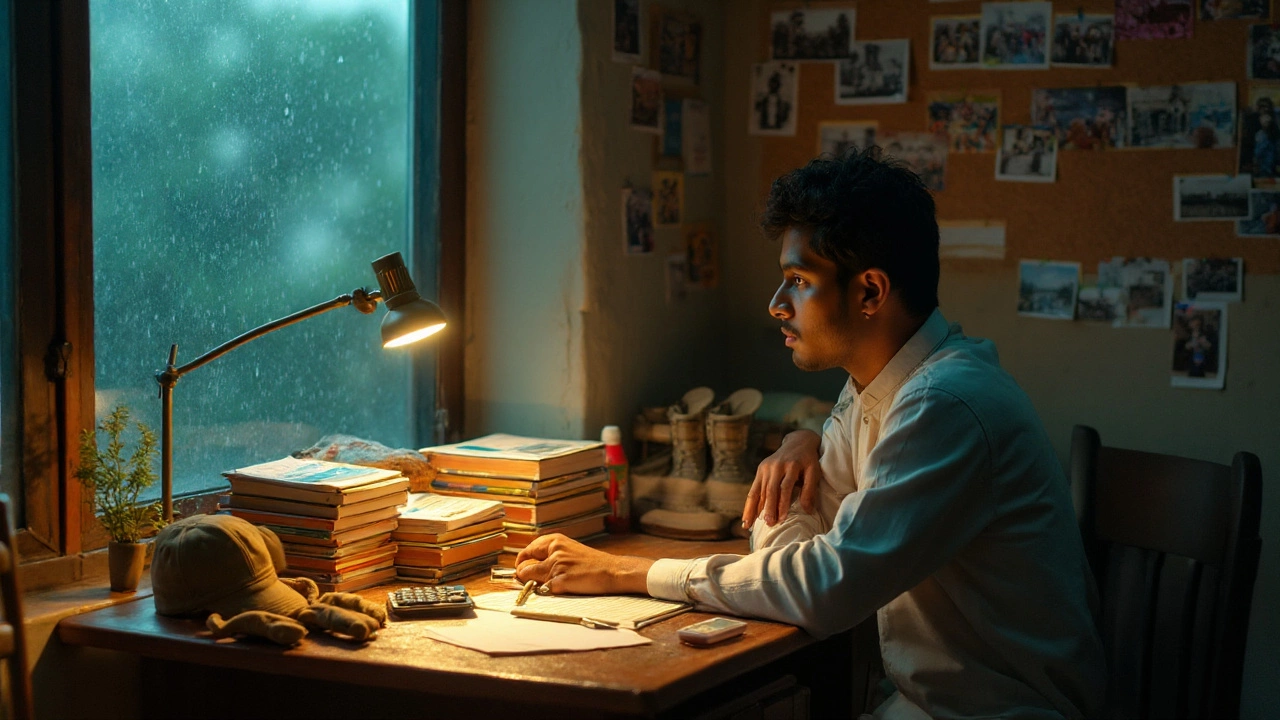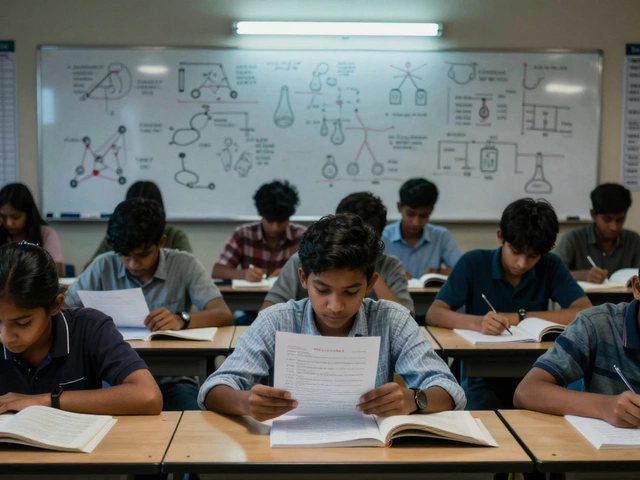TL;DR
- There isn't one single "hardest" role. By exam difficulty and selectivity, India’s UPSC Civil Services (IAS/IFS) tops the list. By real-time pressure, Air Traffic Controller is brutal. By physical risk and attrition, military special forces and frontline police lead.
- Difficulty has layers: getting in (selection rates), staying in (training, burnout), and doing the work (stakes, risk, decision load, shifts).
- Pick the lens that matters for you-exam gauntlet, on-the-job stress, or moral complexity-then match roles to strengths.
- If you love high-stakes problem solving with calm under pressure, ATC or emergency services fit. If you prefer policy and impact, civil services and diplomacy make sense.
- Use the quick-fit checklist and comparison table below to choose and plan your prep path.
Everyone wants a straight answer: which government job is the hardest? Here’s the catch-the word “hardest” hides different beasts. One job crushes you at the entrance exam. Another dials up stress and risk once you’re in uniform. A third wears you down with moral weight and public scrutiny. If you want the truth, you need to split difficulty into parts and then decide which kind of hard you actually want.
How to measure “most difficult” without arguing in circles
If you’re trying to compare a diplomat to a firefighter to a judge, you need a shared yardstick. Use these five lenses. They cover how tough it is to get in, stick around, and perform when it matters.
- Entrance selectivity: How hard is it to be chosen? Think pass rates, cutoffs, and prerequisites.
- Training intensity and attrition: How demanding is the pipeline? How many drop out?
- On-the-job decision load: How fast and accurate must decisions be? How much ambiguity and information overload?
- Risk and exposure: Physical danger, legal risk, and public scrutiny.
- Lifestyle strain: Shift work, sleep loss, relocations, family impact, and long-term burnout.
A few quick rules of thumb to compare apples to apples:
- If you love structure and books, the entrance hurdle may be your biggest filter. That’s where civil services and judiciary exams dominate.
- If you get a kick from real-time problem solving, operational roles (air traffic control, emergency medicine, firefighting, policing) are your arena.
- If mission and meaning matter more than comfort, social services, diplomacy in hardship posts, and correctional services bring deep impact and high strain.
- If you crave elite challenge, special forces selection is unmatched for physical-mental load over short windows.
One more nuance: difficulty isn’t static. A job can be easy to enter but brutal to sustain (prisons, child protection). Another can be hard to enter but stable after (some policy or audit cadres). So choose the type of hard you can live with for years, not weeks.
The front-runners: which jobs are “hardest” by each lens
Here’s where the rubber meets the road. These roles repeatedly surface at the top when people inside government talk about the toughest jobs.
- By exam difficulty and selectivity: Civil Services (India’s UPSC; similar in other countries’ elite corps)
Why it’s hard: UPSC Civil Services is a marathon of depth and breadth-history, polity, economics, ethics, optional subject, interviews. Over a million apply, a few hundred enter the most sought-after services like IAS and IFS each year. The core difficulty isn’t just facts-it’s judgment, synthesis, and stamina over months. Aspirants face a long uncertainty window, high opportunity cost, and a real risk of burnout.
What the job demands later: policy complexity, crisis coordination, public scrutiny, and political navigation. Less adrenaline than frontline roles, but higher complexity and constant accountability. Selection is punishing; the work is no walk in the park either. - By real-time cognitive stress: Air Traffic Controller (public sector)
Why it’s hard: Controllers manage dozens of aircraft at once, often in poor weather, tight airspace, and rolling disruptions. It’s one of the cleanest examples of high-cognition, zero-error tolerance work. Training and certification take 1-3 years with strict medical standards. Shift work and fatigue are baked in.
What the job demands later: constant vigilance, crisp communication, and fast mental math. A lapse isn’t a small mistake; it’s potentially catastrophic. Aviation regulators highlight fatigue and attention management as core safety issues in control rooms. - By physical risk and attrition: Military Special Forces and frontline Police
Why it’s hard: Special forces selection in many countries passes fewer than 10-20% of applicants. It’s a test of endurance, pain tolerance, teamwork under stress, and mental grit. Frontline police face violence, legal risk on every decision, and media scrutiny.
What the job demands later: high fitness, disciplined judgment under threat, and relentless training. Injuries and family strain are common. It’s a lifestyle, not just a job. - By moral complexity and burnout: Child Protection Social Workers and Prison Officers
Why it’s hard: Caseloads are heavy, stakes are raw (child safety, domestic violence), and decisions get second-guessed in the media and courts. In corrections, officers manage volatile environments with limited staffing and constant vigilance. Burnout and turnover are chronic issues.
What the job demands later: emotional resilience, conflict de-escalation, tight procedures, and the ability to leave work at work-harder than it sounds. - By medical complexity and resource strain: Emergency Physicians and Paramedics (public sector)
Why it’s hard: Overcrowded departments, time-critical decisions with incomplete data, and rotating nights. Ambulance crews face uncontrolled scenes, violence risk, and emotional tolls.
What the job demands later: calm under chaos, technical skill, and recovery routines to protect sleep and mental health. - By geopolitical stakes and ambiguity: Diplomats/Foreign Service Officers
Why it’s hard: You’re negotiating in gray zones, sometimes in hardship or conflict postings, with security and reputational risks. Selection can be competitive (multi-stage exams, case interviews, languages).
What the job demands later: languages, cultural fluency, negotiation, and patience with slow-moving wins. Pressure spikes during crises. - By legal rigor: Judges and Prosecutors
Why it’s hard: The cognitive and ethical burden is heavy. In some countries judges come through judicial services exams; in others they’re appointed after years of practice. The job is less physically risky but relentlessly exacting in analysis and time pressure.
If you forced a single headline: by exam gatekeeping, civil services (like India’s UPSC) are the toughest to enter; by daily cognitive pressure, Air Traffic Controller is intense; by physical-mental attrition, special forces and frontline policing sit at the peak; by moral load and burnout, child protection and corrections test your soul.

Compare the hardest government jobs: one table, real trade-offs
This scoring is a practical snapshot, not a scientific law. It blends public data (selection rates published by commissions and agencies), training expectations discussed by services, and lived realities reported by practitioners. Scores run 1 (low) to 5 (extreme).
| Role | Entrance Selectivity | Training Intensity | Decision Load | Risk/Exposure | Lifestyle Strain | Notes |
|---|---|---|---|---|---|---|
| Civil Services (IAS/IFS) | 5 | 4 | 4 | 3 | 4 | UPSC acceptance for top cadres is tiny; work is complex and public-facing. |
| Air Traffic Controller | 4 | 4 | 5 | 4 | 5 | High cognition; strict medical; 24/7 shifts; near-zero error tolerance. |
| Military Special Forces | 4 | 5 | 4 | 5 | 5 | Selection pass often under 20%; extreme risk and tempo. |
| Frontline Police | 3 | 4 | 4 | 5 | 5 | Legal risk + physical danger + rotating shifts. |
| Child Protection Social Worker | 3 | 3 | 4 | 4 | 5 | High caseloads; emotional toll; public scrutiny in failures. |
| Prison Officer | 3 | 3 | 3 | 5 | 5 | Constant vigilance; assault risk; chronic understaffing. |
| Emergency Physician (Public) | 4 | 5 | 5 | 4 | 5 | Long training; relentless nights; fast decisions with limited data. |
| Diplomat/Foreign Service | 4 | 3 | 4 | 3 | 4 | Hardship postings; crisis spikes; complex negotiations. |
| Judge/Prosecutor | 4 | 4 | 4 | 3 | 4 | Legal rigor; heavy caseloads; reputational risk is high. |
Quick read of the table: the roles that “spike” across multiple columns are Air Traffic Controller, Special Forces, Emergency Physician, and Civil Services at the entry gate. If you want the hardest challenge with the least physical risk, ATC and civil services are your top contenders. If you want mission + grit, special forces and frontline policing are unmatched.
Now, how do you pick, realistically?
- If you hate shift work, cross out ATC, emergency medicine, policing, corrections.
- If you hate exam drudgery, cross out civil services, judiciary, and some diplomatic tracks.
- If you want to avoid physical danger, cross out special forces and frontline policing.
- If emotional spillover wrecks your sleep, cross out child protection and prisons.
One more sanity check: talk to three people doing the job, not just one. Ask what their worst day looks like, and how many days a month feel like that. If you can live with the worst day twice a week, you can handle the job.
Your fit, your plan: checklists, examples, and a pragmatic path
Use this quick-fit checklist. If you tick three or more, the role may be a match.
- Civil Services (UPSC-type)
- You enjoy long, solitary study blocks and can write fast with structure.
- You like policy, history, and ethics debates more than equations or lab work.
- You’re okay with 12-18 months of prep and uncertain outcomes.
- You handle public scrutiny and politics without flaring up.
- Air Traffic Controller
- You stay calm in chaos and can juggle multiple streams of info.
- You don’t mind 24/7 shifts and have strong sleep hygiene.
- Your eyesight, hearing, and health meet strict medicals.
- Clear, concise radio communication feels natural or trainable.
- Special Forces / Frontline Police
- You train consistently and enjoy physical grind.
- You can follow orders under stress without losing judgment.
- Your family is on board with risk and irregular hours.
- You bounce back from setbacks quickly.
- Child Protection / Prisons
- You can set boundaries and still be compassionate.
- You’re steady in conflict and can de-escalate with your voice.
- Paperwork doesn’t scare you; procedures are your friend.
- You’ve got a plan for mental health maintenance.
- Emergency Medicine / Paramedic
- You thrive in teams and like hands-on, time-critical work.
- Sleep disruption doesn’t wreck you; you can nap strategically.
- You can deliver bad news with care and still function the next hour.
- Diplomat / Foreign Service
- You love languages, cultures, and long games with subtle wins.
- You can write cables/reports crisply and brief seniors without drama.
- You’re okay with frequent moves and hardship tours when needed.
- Judge / Prosecutor
- You think in precedents and can hold impartiality under pressure.
- Meticulous reading and writing feel like craft, not drudgery.
- You handle combative courtrooms with steady tone and patience.
Prep playbooks (short and honest):
- UPSC/Civil Services: One standard text per subject, a past-papers-first strategy, weekly timed writing, and one optional subject you’d enjoy for a year. Build a news-to-notes pipeline. Keep mock interviews rolling after mains.
- ATC: Strong foundations in math/logic and spatial reasoning, plus communication drills. Practice with radar-scope simulations if available. Protect sleep like it’s part of the job-because it is.
- Special Forces/Police: Periodized training (strength, endurance, ruck), injury-proofing, and stress inoculation (cold, time caps, under sleep). Practice land nav and team comms. Learn to manage blisters and mindset.
- Child Protection/Prisons: De-escalation training, case law familiarity, and a non-negotiable self-care plan (supervision, counseling, peer support). Learn documentation that stands up in court.
- Emergency Medicine/Paramedic: Scenario-based training, cognitive aids (checklists), and closed-loop communication in the team. Sleep science matters as much as clinical updates.
- Diplomat/Foreign Service: Policy writing drills, one hard language to intermediate level, and structured practice for case exercises. Build a crisis toolkit (checklists, briefs, contact trees).
- Judge/Prosecutor: Brief-writing sprints, evidence law drills, and mock trials with timed rulings. Create a personal framework for bias checks.
Common pitfalls to avoid:
- Chasing prestige over fit: The wrong kind of hard will beat you, even if you clear the exam.
- Underestimating recovery: Sleep, nutrition, and boundaries are performance gear, not luxuries.
- Ignoring family buy-in: High-strain roles are household commitments.
- Not talking to insiders: You need unvarnished stories, not brochures.
- Switching materials too often (for exams): Depth beats volume.
Decision mini-map (no fancy diagram needed):
- Do you want adrenaline and fast calls? Yes → ATC, emergency services, policing. No → civil services, diplomacy, judiciary.
- Can you handle night shifts well? Yes → ATC, ED, policing, prisons. No → civil services, diplomacy, judiciary.
- Are you okay with high physical risk? Yes → special forces, frontline police, firefighting. No → civil services, ATC, diplomacy.
- Do you enjoy long academic prep? Yes → civil services, judiciary, diplomacy. No → ATC, policing, emergency services.
Regional flavors (brief, not exhaustive):
- India: UPSC Civil Services is infamous for its selectivity. Frontline police and paramilitary see tough postings. Air traffic services are high-pressure in busy metros.
- United States/Europe: ATC, federal law enforcement, and emergency medicine are intense; some ATC systems have rigorous training with washout risk. Diplomacy and prosecution are selective and demanding.
- New Zealand/Australia: Air traffic control sits with state entities and is cognitively heavy. Frontline policing, ambulance, and rural firefighting carry high strain, with smaller teams and long distances adding complexity.
One last thing: don’t confuse difficulty with value. Plenty of essential government work is not soul-crushingly hard day to day-and that can be a sign of well-designed systems, not low importance.
Mini-FAQ
- So, which job wins the title? If you force a single pick across entry and daily grind, Air Traffic Controller is the most consistently hard on a normal day; UPSC-type civil services is the most brutally selective at entry. Different crowns for different rings.
- Is UPSC really the toughest exam? For breadth, essay-writing, interview complexity, and tiny acceptance for top cadres, yes-especially compared to many public-sector exams.
- Is ATC stress overrated? Not really. The job is designed around managing stress: strict medicals, duty-hour caps, and teamwork to prevent fatigue errors. That said, good unit culture reduces burnout a lot.
- Which role hurts work-life balance the most? Shift-heavy and crisis-heavy jobs: ATC, emergency medicine, policing, prisons. Civil services and diplomacy strain balance in different ways-relocations, long days, political cycles.
- Do pay and difficulty match? Sometimes. Hazard and shift allowances help, but few public roles fully “pay for” the family and sleep trade-offs. Choose for fit first, money second.
- Hardest job in a small country? Often the same types: ATC, rural emergency services, and special tactics units-small teams, big distances, limited backup.
Next steps
- Pick your “lens of hard”: exam, daily pressure, physical risk, or moral load. Rank them for yourself.
- Shortlist two roles that match those priorities.
- Book three conversations per role: one novice, one mid-career, one veteran. Ask for a “worst week” story.
- Run a one-month test: sleep schedule for shift roles, daily study for exam roles, fitness block for tactical roles. Track how you feel, not just results.
- Create a 90-day plan with milestones (mocks passed, kilometers rucked, hours slept, interviews done). Adjust or pivot by day 90-no sunk-cost pride.
Troubleshooting your plan
- Burning out in exam prep? Cut sources to one per subject, switch to active recall and weekly mocks, and schedule one off-day per week.
- Struggling with shift sleep? Blackout room, caffeine cutoff 6 hours pre-sleep, 20-minute anchor nap pre-night shift, consistent wake time.
- Fitness stalling for tactical roles? Deload week every 4-6 weeks, fix protein and sleep first, then change only one training variable at a time.
- Emotionally drained in social services/corrections? Add structured supervision, peer defusing sessions, and a post-shift ritual that signals “off”.
- Family pushback? Share your roster/study plan, agree on non-negotiable family blocks, and revisit quarterly.
Bottom line: the most difficult government job depends on which kind of hard you respect and can sustain. Pick the challenge that fits your wiring, build honest routines around recovery, and learn from people already living it. That’s how you turn hard into doable.


